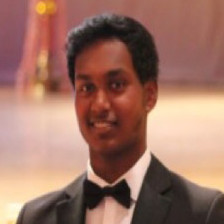Industry Innovation Day Speakers

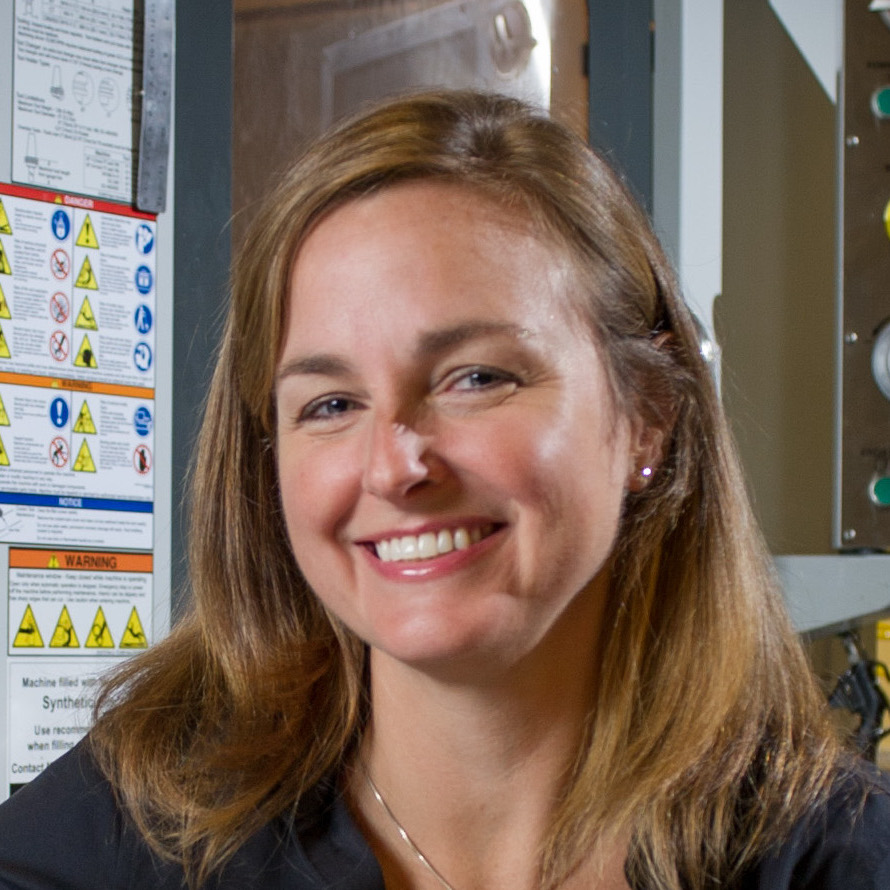
Leanne West is a principal research scientist and chief engineer of pediatric technologies at the Georgia Institute of Technology. Her background includes remote sensing, mobile health applications, and algorithm development. She serves as technical liaison between Georgia Tech and Children's Healthcare of Atlanta. Ms. West works closely with Children's Healthcare to identify solutions that enable better care for patients. As part of the relationship with Children's Healthcare, she also runs a program called Quick Wins, which funds solutions that are clinician-driven and can be wholly solved in 18 months or less. Ms. West serves on the Executive Management team of the Parker H. Petit Institute for Bioengineering and Bioscience and on the Health team at Georgia Tech's Institute for People and Technology. She served as the twice-elected chair of the Georgia Tech Executive Board and as chair of Georgia Tech's Charitable Campaign in 2017.
Sherry Farrugia is the COO and CSO for the Children's Healthcare of Atlanta Pediatric Technology Center at GT and the Director for the Children’s Healthcare of Atlanta. In this dual role, she works to build and sustain public-private partnerships in pediatrics and health IT and manages the partnership’s multimillion-dollar research portfolio. She provides executive-level leadership for business and operational functions and works to improve the overall execution of key business initiatives to improve efficiency, effectiveness and reduce administrative costs. This includes providing insight into the innovations, new technologies, and start-ups developed as a result of the partnership. Prior to this position, Sherry was the Managing Director of Health IT at Georgia Tech. Sherry has over 25 years’ experience in the health information technology (IT) field, consulting with numerous industry partners, and many state agencies including the State of Georgia in the areas of care management systems, health information exchange, and enterprise data governance. She is very active in the Atlanta community serving on multiple health and pediatric-related boards.
Jon Duke, M.D., is the director of health informatics at Georgia Tech's College of Computing, School of Computational Science & Engineering, and holds a joint appointment as a principal research scientist in the Georgia Tech Research Institute's (GTRI) Information & Cyber Sciences Directorate. He leads big data in medicine research projects. Duke previously held an appointment as a senior scientist and director of health analytics and advanced text mining at the Regenstrief Center for Biomedical Informatics. While at Regenstrief, he also led the Drug Safety Informatics Lab as well as a 5-year partnership with Merck & Co, which conducted more than 45 projects involving at least 70 faculty and staff. Jon leads Georgia Tech’s initiative to improve human health through better capture, interpretation, and applications of data. This effort incorporates a spectrum of expertise including machine learning, natural language processing, high-performance computing, sensors, cybersecurity and health data interoperability. While applying advanced technology, these efforts manifest through real-world projects supporting not only research environments but health care systems, government and industry partners, and community collaborators.
Shantanu is a veteran entrepreneur with a passion for Artificial Intelligence (AI) and patient wellness. His drive is fueled by a unique background that spans healthcare and the transformative AI technology that has changed the way complex problems are understood and solved. Shantanu’s career path started in the late 90s when he founded an AI company that was shifting search algorithms from keyword-based to intent driven through the use of Eigenspace. Shantanu moved into Accenture’s Healthcare practice where he served in a leadership position for most of the 2000s. In addition to leading multiple payer and provider consulting engagements, Shantanu helped bring to market some of Accenture’s most innovative and leading-edge offerings. In his current role, Shantanu leads cognitive machine leader Jvion. Under his leadership, the company delivers an innovative AI and patient wellness solution. This solution leverages a powerful approach that surpasses the effectiveness of any other offering and has served to establish the direction for clinical AI and its extension beyond risk identification. Jvion's solution was brought to market with a first mover advantage and has held the dominant position in the healthcare AI market. Shantanu earned his Bachelor of Engineering from the Indian Institute of Technology in India.
Dr. Wang’s primary research interest is in biomedical and health informatics for systems medicine, with the goal to accelerate and enable the discovery, development, and translation in modern biology, medicine, and healthcare. She has been publishing in journals such as Annals of Biomedical Eng, BMC Bioinformatics, Trends in Biotechnology, Nature Protocols, Proceedings of National Academy of Sciences, Annual Review of Medicine, The Pharmacogenomics Journal, Nature Biotechnology, and Genome Biology, etc. Her team has developed multiple informatics software systems. Among these, caCORRECT and omniBiomarker have been certified by NCI caBIG as silver-level compatible. During 2005-2010, May has served as the director of Bioinformatics and Biocomputing Core in NCI sponsored Emory-Georgia Tech Center of Cancer Nanotechnology Excellence. In addition, she has played an active role in working groups of National Cancer Institute (NCI/NIH) cancer Biomedical Informatics Grid (caBIG) on nanoinformatics, and FDA-led Microarray Quality Control Consortium (MAQC) on investigating regulatory guidelines for biomarkers. May received the Distinguished Cancer Scholar Award from Georgia Cancer Coalition in 2004, an Outstanding Undergraduate Research Faculty Mentor Award from Georgia Tech in 2005, and an Outstanding Service Award from IEEE BIBE in 2007. May received Ph.D.EE, multidisciplinary MS degrees (EE, Applied Math, and CS) from Georgia Institute of Technology, and BEng from Tsinghua University in China. In addition, she has several years of industrial R&D experience in the former AT&T Bell Labs, Intel Architecture Labs, Hughes Research Labs, Lucent Technologies Bell Labs, and Agere Systems.
Doug Bodner is a principal research engineer in the Institute for People and Technology. His research focuses on deriving insights and solutions to problems involving complex systems using statistics, stochastic analysis and simulation, and normative design and optimization. Recent applications include healthcare, smart city infrastructure, defense, and production/distribution systems. His research has been funded by the National Science Foundation, GE Energy, Department of Defense, and Lockheed-Martin Aeronautics, among others.

Megan Denham is an accomplished academic with a diverse clinical and research background who is driven by a passion to return the dignity and respect to those receiving care, and improve the experience providing care in health systems. Megan is a dynamic presenter with exceptional writing skills, excels at explaining and translating complex topics to broad audiences, has strong leadership skills, is a creative thinker, and an avid problem solver. She is known for organizational skills and efficiency, particularly with large complex systems and groups, and has significant experience structuring research strategies, and conceptualizing data management plans.
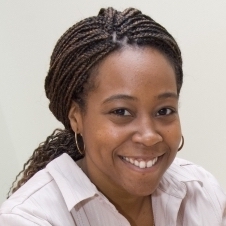
Dr. Ayanna Howard received her B.S. in Engineering from Brown University, her M.S.E.E. from the University of Southern California, and her Ph.D. in Electrical Engineering from the University of Southern California, Los Angeles in 1999. Her area of research is centered around the concept of humanized intelligence, the process of embedding human cognitive capability into the control path of autonomous systems. This work, which addresses issues of human-robot interaction, learning, and autonomous control, has resulted in over 180 peer-reviewed publications in a number of projects - from scientific rover navigation in glacier environments to assistive robots for the home. To date, her unique accomplishments have been highlighted through a number of awards and articles, including highlights in USA Today, Upscale, and TIME Magazine, as well as being named a MIT Technology Review top young innovator, recognized as NSBE Educator of the Year, and receiving the Georgia-Tech Outstanding Interdisciplinary Activities Award.
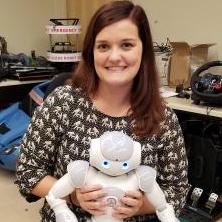
Katelyn Fry graduated from the University of Michigan with a Masters degree from the Robotics department. She also received her B.S. in Electrical Engineering from Clemson University. Her interests are in developing wearable interfaces for identifying kicking pattern differences in infants to help in the early detection of children at-risk for developing a disability.
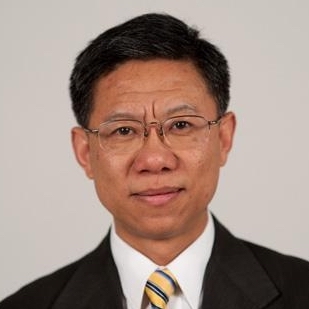
Chuck Zhang's research interests include scalable nanomanufacturing, modeling, simulation, and optimal design of advanced composite and nanomaterials manufacturing processes, multifunctional materials development, geometric dimensioning and tolerancing, and metrology. Most recently, he has initiated new research and education programs in advanced materials and manufacturing engineering for orthotics and prosthetics (O&P) applications. His research projects have been sponsored by a number of organizations, including the Air Force Office of Scientific Research, Army Research Laboratory, National Institute of Standards and Technology, National Science Foundation, Office of Naval Research, and Society of Manufacturing Engineers, as well as industrial companies such as ATK Launch Systems, Cummins, General Dynamics, GKN Aerospace Services, Lockheed Martin, and Siemens Power Generation.
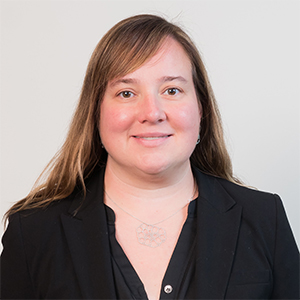
Dr. Maribeth Gandy is the Director of IMTC as well as the Associate Director of Interactive Media for the Institute for People and Technology. She does research in the areas of augmented reality, mobile computing, and HCI. She is a computer scientist who is interested in not only building interesting mobile applications, accessible interfaces, and AR experiences but in bringing HCI techniques for design and evaluation into these domains. Maribeth has worked on a wide array of projects in the 12 years she has been a faculty member at Georgia Tech; ranging from an augmented reality prototyping tool, to an accessible computer interface based on gesture, to a virtual reality experience for exposing theater students to vaudeville. She is currently collaborating with NC State on an NSF funded project to develop cognitive games for older adults.She is currently developing presence metrics for measuring engagement in AR environments using qualitative and quantitative (physiological measures) data. She also teaches the “Video Game Design” course and the "Principles of Computer Audio" (which she created in 2001) in the College of Computing at Georgia Tech.
